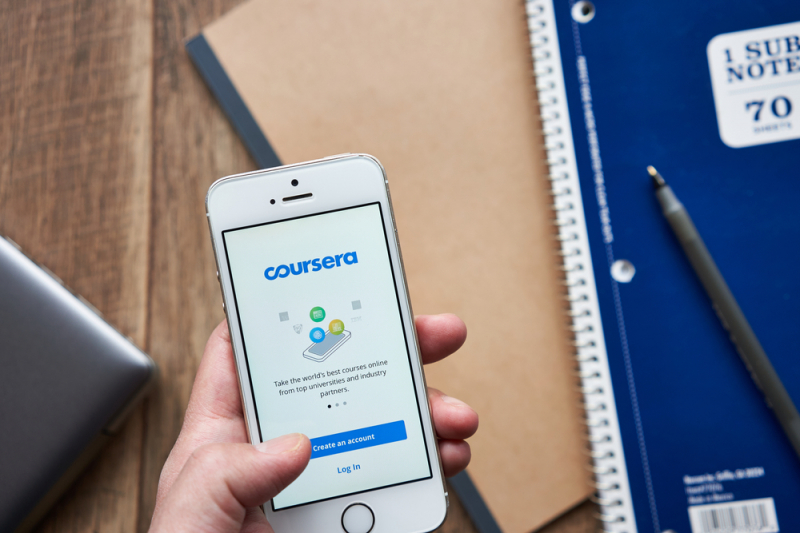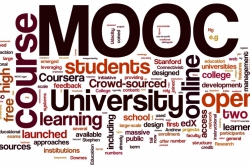The deadline for getting full access to courses, including additional materials, graded tasks, projects, and certificates is December 31, 2020. The number of members per course may be limited.
You can find the full list of courses covering various fields, from well-being to mathematical analysis, in this article by Business Insider.
How to enroll for free:
-
Choose a course you’d like to take. Make sure there’s a promo banner at the top of its page. If not, try refreshing the page.
-
Click “Enroll for free”. Once a window with the name of the course opens, click “Continue”.
-
The discount will be applied automatically as you complete the enrollment.

Computer science
Computer Science: Programming with a Purpose
Organizer: Princeton University
Target audience: beginner and intermediate programmers
Language: English + English subtitles
An introductory course in Java programming. You will also acquire basic skills of computational problem solving that can be applied in many computing environments. The course also can be interesting to experienced programmers who want to understand the principles behind coding and dive deeper into programming overall.
Organizer: Princeton University
Target audience: beginner and intermediate programmers (Java)
Language: English + English, French, Portuguese (Brazilian), Korean, Russian, and Spanish subtitles
This course will introduce you to algorithms and data structures. It’s mainly focused on applications and scientific performance analysis of Java implementations. Key topics include elementary data structures, as well as sorting and searching algorithms. Intermediate users might find it useful for practice. You can continue studying this topic by joining two more courses – Algorithms, Part II and Analysis of Algorithms.

Build Your First Android App (Project-Centered Course)
Organizer: CentraleSupélec, French institute of research and higher education in engineering and science
Target audience: student who can program in Java
Language: English + English subtitles
This course provides students with customizable building blocks that can be used to create various types of apps. It will help them become familiar with the development process. You will also acquire knowledge and skills needed to move on to more advanced development and implementation of your own Android app.
Organizer: Princeton University
Target audience: students with basic knowledge of computer architecture or beginners
Language: English + English subtitles
In this course, you will learn a lot about modern microprocessors: their types, architecture, microarchitecture, and instruction set architecture. You can apply this information while designing your own microprocessor.
Introduction to Programming with MATLAB (free without a certificate)
Organizer: Vanderbilt University
Target audience: beginner programmers
Language: English + English subtitles
You will learn how to program using MATLAB and related software. MATLAB is a universal and easy-to-use programming language that is handy for solving tasks in computing and math overall. It’s applied in various fields from natural sciences to engineering, finance, and industry.
Cloud technology

Building Conversational Experiences with Dialogflow
Organizer: Google Cloud
Target audience: students with expertise in Python, AngularJS, and Google Cloud
Language: English + English, French, Portuguese (Brazilian), Russian, and Spanish subtitles
In this course, you will learn about the capabilities and tools of the cloud service by Google Dialogflow, find out how to create a chatbot using Dialogflow, augment it with API Cloud Natural Language, and operationalize it via Google Cloud. Students who have already completed this course say that it’s a great introduction to Dialogflow and Google Cloud Platform, but there’s not enough time and equipment to complete the assignments.
Google Cloud Platform Fundamentals for AWS Professionals
Organizer: Google Cloud
Target audience: AWS solution architects and SysOps administrators familiar with AWS features and setup
Language: English + English, Spanish, Russian, and French subtitles
A brief six-hour long course with practical tasks will introduce users experienced in AWS to Google Cloud Platform in four aspects: networking, computing, storage, and databases.
Getting Started with AWS Machine Learning
Organizer: Amazon Web Services
Target audience: students with basic knowledge of machine learning and Python
Language: English + English, French, Portuguese (Brazilian), Russian, and Spanish subtitles
In this course, you will learn how to get started with AWS Machine Learning. Among the key topics are: machine learning, computer vision, and natural language Processing (NLP) on AWS. Each topic includes several modules covering various machine learning concepts, AWS services, and expert tips on how to apply them. Students who have already completed this course say that it’s mostly about theoretical knowledge rather than practical tasks or advanced technical features of machine learning.
Space science
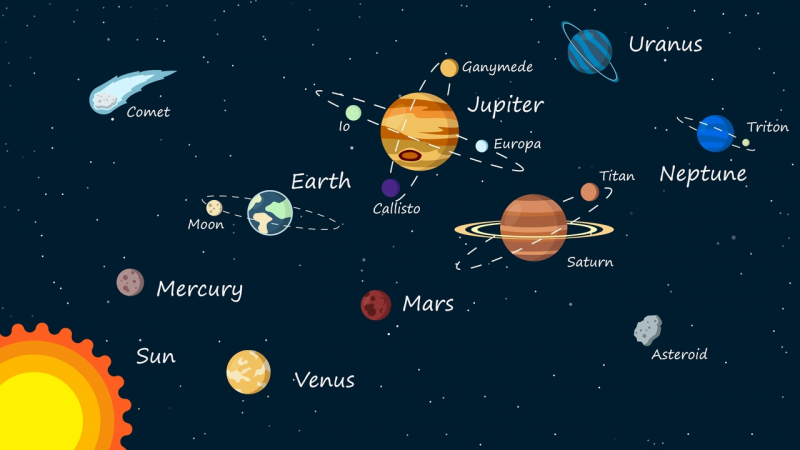
The Science of the Solar System
Organizer: Caltech
Target audience: students with basic knowledge of math and physics
Language: English + English subtitles
This course allows you to learn more about the Solar System along with scientific fields and methods that study it. That includes the history and results of research into the planets and other space objects of our solar system. Keep in mind that the course was created in 2017, so some information may be outdated.
Astronomy: Exploring Time and Space
Organizer: The University of Arizona
Target audience: students with basic knowledge of math and physics or willing to acquire it
Language: English + English subtitles
The course is dedicated to modern astronomy and key discoveries in this field – useful for broadening your horizons.
Engineering
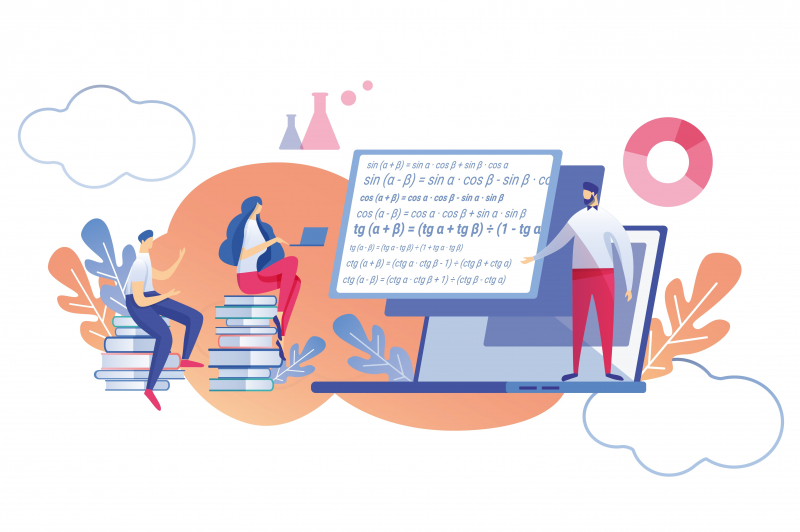
Mechanics of Materials I: Fundamentals of Stress & Strain and Axial Loading
Organizer: Georgia Tech
Target audience: design and civil engineers with any level of expertise
Language: English + French, Portuguese (Brazilian), Russian, and Spanish subtitles
A basic course on solid objects subjected to stress and strain. You will learn methods that are used to predict the response of engineering structures to various types of load, as well as for analysis of the vulnerability of these structures.
Business
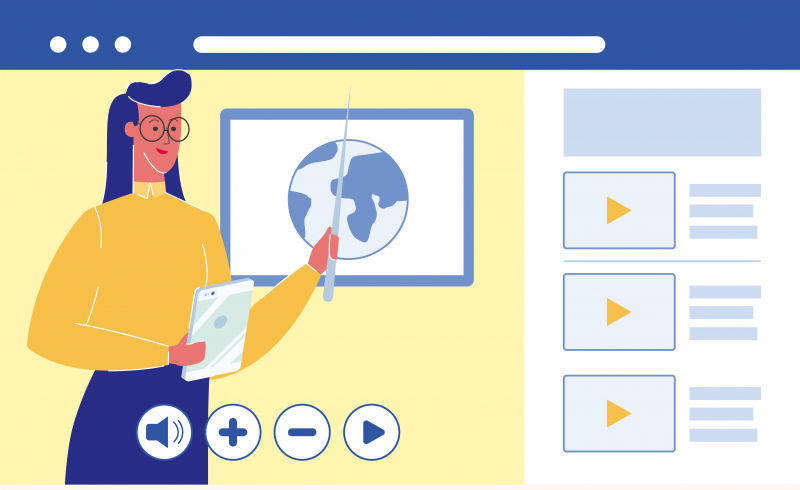
Organizer: University of Virginia
Target audience: beginners in marketing analytics
Language: English + English, French, Portuguese (Brazilian), Russian, and Spanish subtitles
You will study theory needed to understand how and why marketing analytics should be used, learn basic terms and tools, get a general idea of what regression analysis is, and how to develop experiments for evaluation and optimization of marketing campaigns.
Becoming a changemaker: Introduction to Social Innovation
Organizer: University of Cape Town
Target audience: beginner social entrepreneurs or company owners
Language: English + English subtitles
Within this course, you will become familiar with examples of social innovation from all over the world, come up with your own approach, and apply skills needed for social change.
For researchers

How to Write and Publish a Scientific Paper (Project-Centered Course)
Organizer: École Polytechnique
Target audience: students with experience in research
Language: English + English, Portuguese (Brazilian), and Russian subtitles
The course offers practical tips on how to write a paper based on existing research. It will also be useful for everyone who has recently started to deal with science and wants to improve their academic writing skills.
